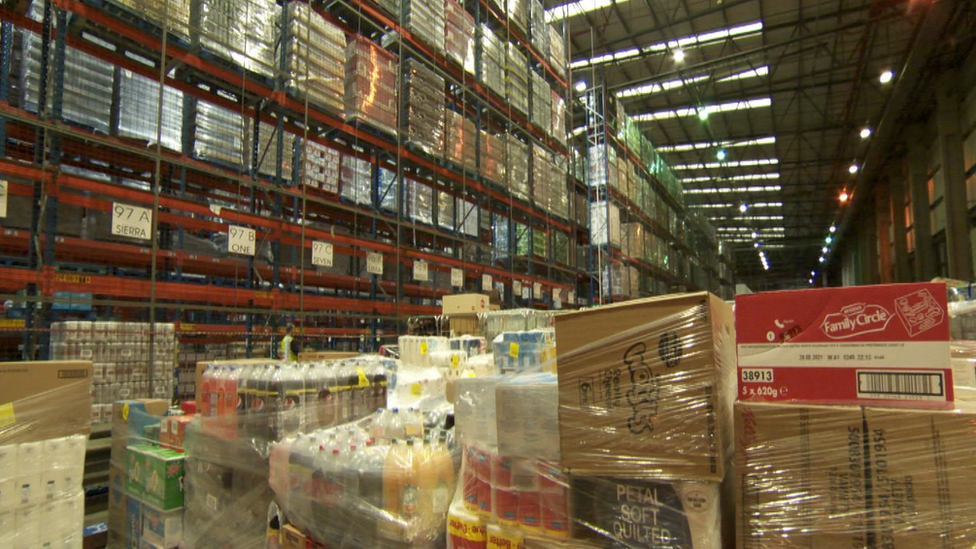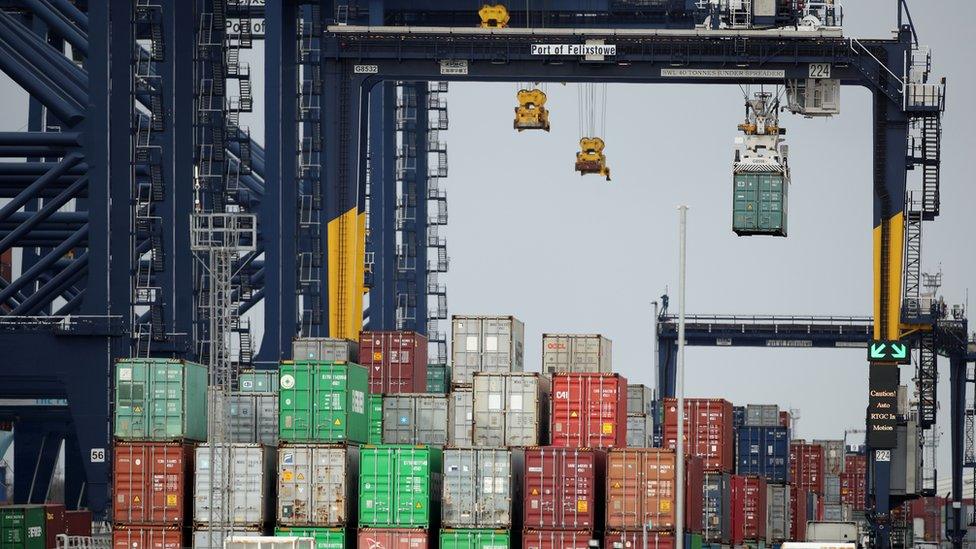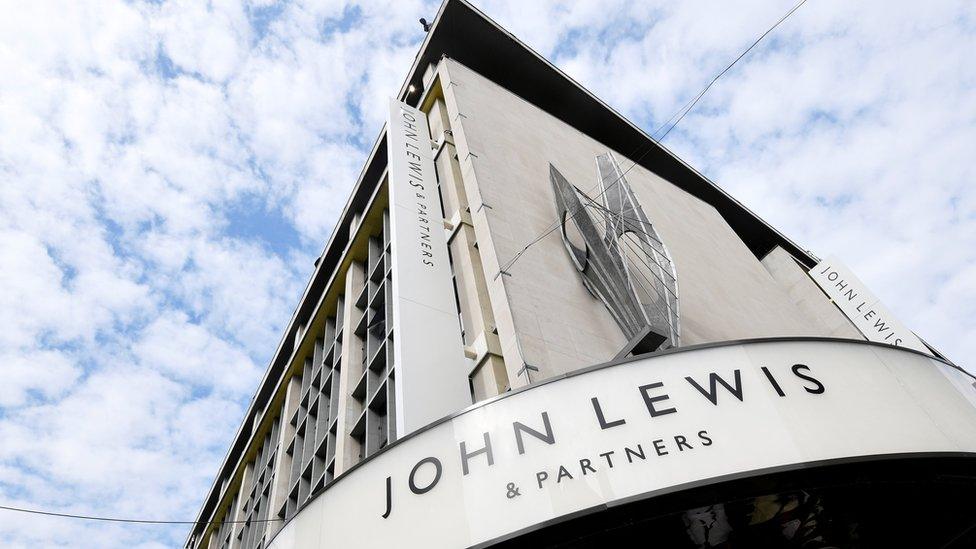Irish Sea Border: Brexit 'forces' NI supplier to buy less from GB
- Published

One of Northern Ireland's biggest catering suppliers is buying less from British firms and more from the EU due to Brexit and the Irish Sea border.
Lynas Foodservice was "naturally being forced" to move to an all-Ireland or pan-European approach to sourcing, said its managing director.
Andrew Lynas was giving evidence to the NI Affairs Committee.
Food products coming from Britain to Northern Ireland have faced a new range of checks and controls since 1 January.
Northern Ireland has remained in the EU single market for goods, while the rest of the UK has left.
That means food products moving from GB to NI face strict EU import processes.
But goods entering Northern Ireland from the EU do not face these controls.
'It is hard work to deal with you'
Mr Lynas gave the example of mozzarella cheese which now faces eight new processes to get from GB to Northern Ireland.
He said they were out of mozzarella for two days this week because a supplier was waiting for a vet to certify the products.
He said they have had to change 25 suppliers since the new year and one GB supplier is now charging an additional £150 per order to cover new administration costs.
"We are seeing more GB suppliers saying 'it is hard work to deal with you,'" he told the MPs.
Some of the firm's supplies are now coming direct from the mainland EU into Rosslare or Dublin ports in the Republic of Ireland.
Mr Lynas gave the example of his chip supplier in the Netherlands who used to ship via GB but now sent direct to the Republic of Ireland.
He estimated extra administration costs for his business would amount to £50,000 a year.
If the UK were align with EU agrifood rules that would "go a long way" to solving these problems, he added.
Mr Lynas said the Northern Ireland Brexit deal would also bring opportunities.
He cited the example of a fast food brand he would be delivering to in the EU because of Northern Ireland's continued role in the single market.
Meanwhile, Hospitality Ulster's Colin Neill said there was a concern among hospitality businesses about being able to get supplies from GB as lockdowns eased and demand increased across the UK.
He said: "We'll not starve in the hospitality sector but there could be less choice, higher wastage and higher costs."
Related topics
- Published2 February 2024

- Published11 March 2021

- Published11 March 2021
